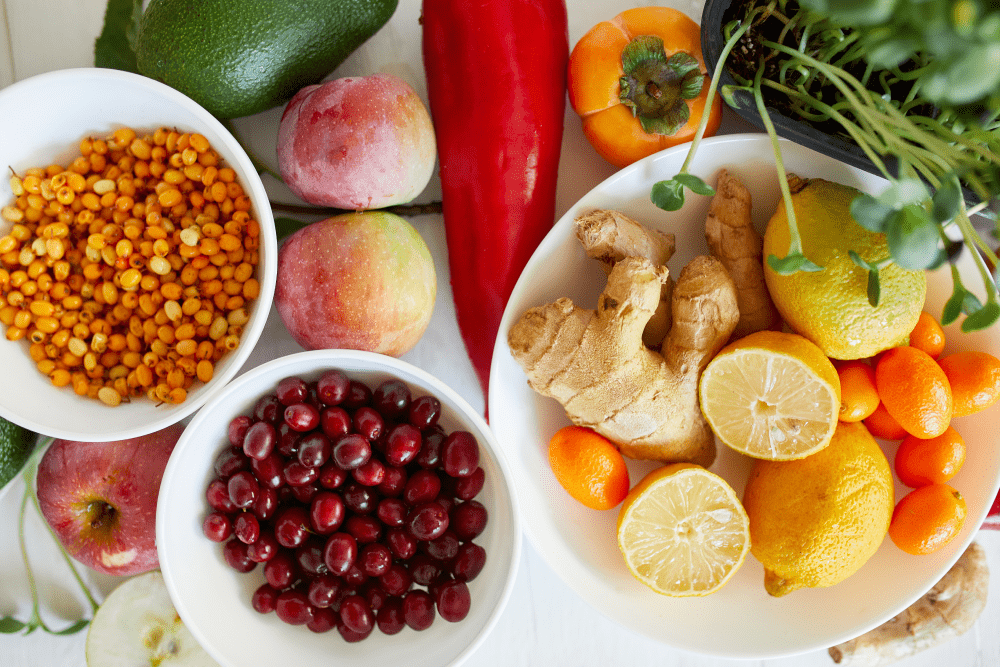If you’re a parent, nanny, babysitter or hands-on relative, you’ll need to know at least a little about what to feed young children. While the recommended diet for a young child isn’t too restricted, it is quite specific, differing from the kinds of diets that kids of other ages require. Fortunately, feeding young kids is quite straightforward once you know the basic recommendations. There are plenty of healthy snacks they’ll love and lots of handy tips that will keep their nutritional needs in check!
What Is the Recommended Diet for an Infant?
From about six months old, babies will start moving from breastmilk or formula onto solid foods. Since new parents will be in uncharted territory, it may be tricky to figure out what food will be best for their young ones. Generally, experts recommend iron-fortified infant cereal, strained fruits, vegetables and pureed meats. As the child gets a bit older, they will be able to have a much wider variety of food. Keep in mind that a healthy amount of fat is important for babies’ brain and nerve development, so don’t give them too many low-fat foods.
What Is the Recommended Diet for a Preschool-Aged Child?
For parents of toddlers and preschoolers, catering to their children’s appetites is quite a task. Kids of this age grow in spurts, and this affects when they’re hungry. They might eat a lot of food one day and barely anything the next, depending on their particular needs. This is normal, and you can cater to this by simply having a selection of healthy food on offer in case they need it. Experts recommend lots of calcium and fibre for children of this age. Milk, soy milk, tofu, sardines, calcium-fortified cereals, waffles and oatmeal are good options. For a decent dose of fibre, go for fruits, vegetables, whole grains and beans.
How Can I Encourage Healthy Eating Habits?
There are many ways in which we can instil healthy habits in our kids. One popular method is to include them in the food preparation process, even if you are just talking them through what you’re doing. By teaching them how to make healthy snacks, they’ll grow up knowing how to access good food when they need it. It’s also helpful to be patient during mealtimes. Kids can eat frustratingly slow, but taking it slow will allow them to assess their appetite and stop when they’re full. On a similar note, try not to punish them if they don’t finish their food. This can encourage them to eat everything on their plate even when they’re full, which furthermore leads to overeating. You should also avoid using food as a reward as this can teach kids to rely on food for comfort. Instead, offer them praise or encouragement, a sticker, or a hug. In general, you should ensure to expose them to plenty of healthy snacks and minimise sugary drinks where you can.
Healthy Snack Options Kids Actually Like
Having a good stock of healthy snacks can be extremely helpful when you’re a carer of young kids. To keep kids interested in healthy food, we recommend choosing a variety of colourful options, such as fruits. We also recommend frozen fruit sticks, trail mix, yoghurt, pickles, popcorn, seaweed snacks, crunchy chickpeas and sweet potato fries. Other great snack combinations include tomatoes and cheese, celery and nut butter, hummus and veggies, chips and guac, and tuna and crackers. For something a bit more substantial, kids love things like chicken sandwiches and turkey wraps.
Be Patient & Stay Positive
Realistically, your children are not going to eat perfectly all the time. To give them the best chance of a nutritious diet, the key is to stay as consistent as possible. If you are too tired to cook and opt for a less nutritious option, forgive yourself and try again tomorrow. Slip-ups happen, and treats are totally okay—so long as you are doing your best to instil and encourage healthy habits. You got this!















